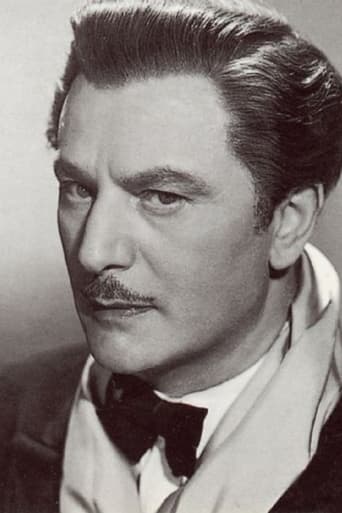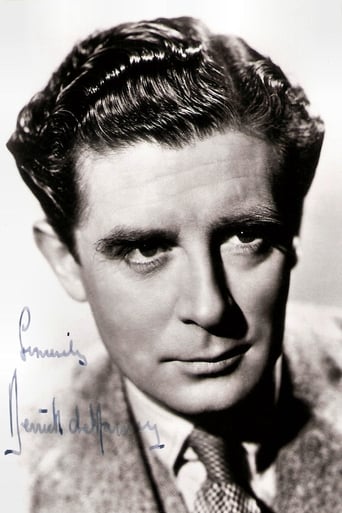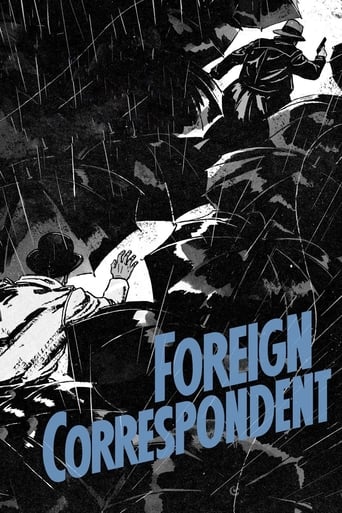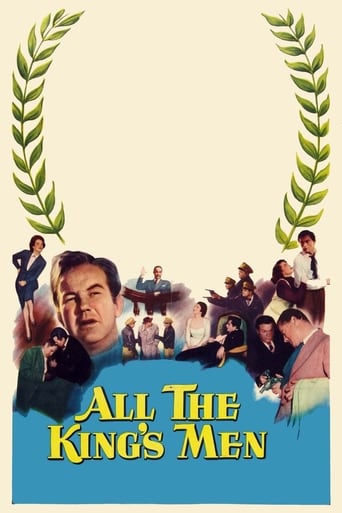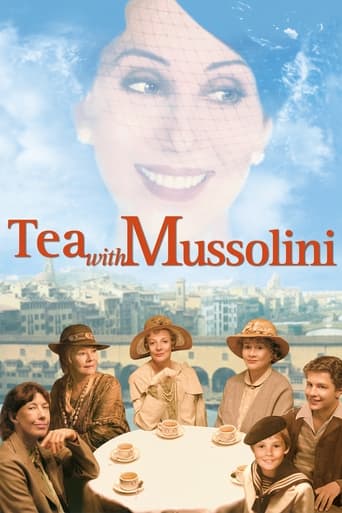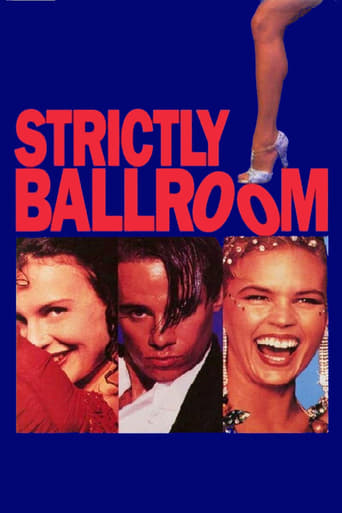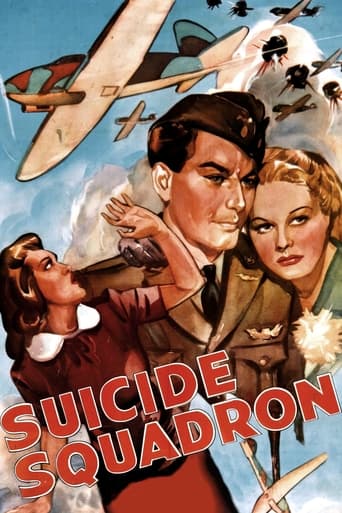
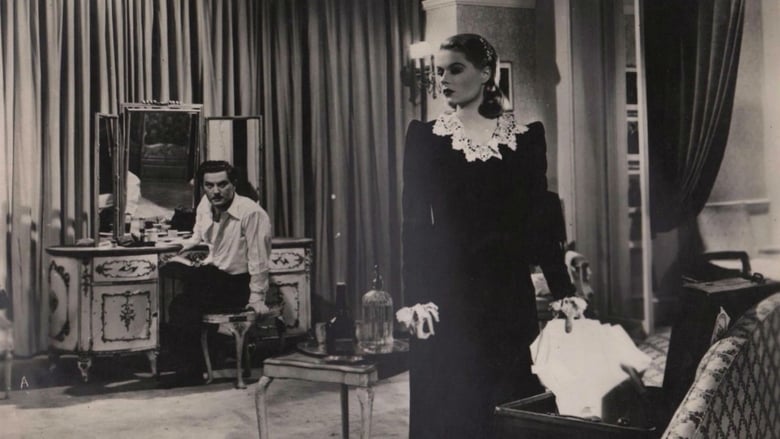
Dangerous Moonlight (1942)
Stefan Radetzky, a Polish pilot and famous concert pianist, is hospitalised in England from injuries sustained while in combat, and having lost his memory. As Radetzky plays the piano in a trance-like state, the story moves back in time to war-torn Warsaw. During an air-raid, Radetzky meets American journalist Carole, and there is a mutual attraction. Following the fall of Poland, Radetzky and Irish pilot, Mike, escape to Rumania and then on to America. Radetzky continues his musical career in America and meets up again with Carole.
Watch Trailer
Cast
Similar titles
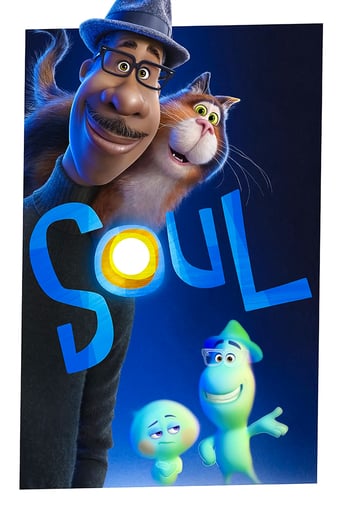
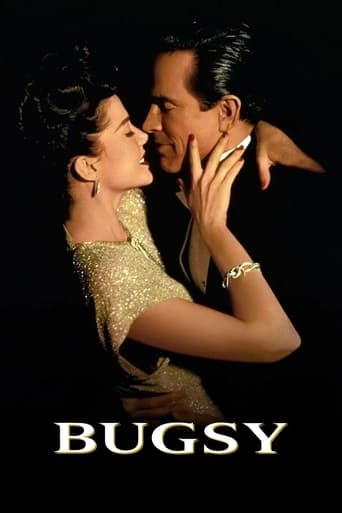
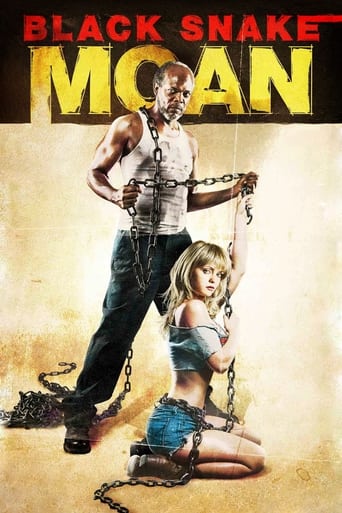
Reviews
That was an excellent one.
i must have seen a different film!!
Good movie, but best of all time? Hardly . . .
Let me be very fair here, this is not the best movie in my opinion. But, this movie is fun, it has purpose and is very enjoyable to watch.
It was inevitable that the piece of music Richard Addinsell composed for this film would become more popular than the movie itself, when it is heard over and over again in the 94 minutes original version or in the 82 minutes reduction made in the United States. Even at this shorter version, the movie seems overlong, because it takes too much screen time to tell a very simplistic patriotic tale. There is not enough passion transmitted by the Polish pianist and his American bride to carry on the movie, and on top of that, too much screen time is given to Derrick De Marney as an Irish suitor, who is supposed to be fiery and passionate but seems rather lame. Poor Sally Gray (25 years old) is trapped in the middle of Anton Walbrook who was 45 and De Marney, 35. The film is interesting up to the leading characters' wedding but after that, it becomes more routine than the previous first part. When Brian Desmond Hurt films the climatic concert as static and dull as he could manage, then you know there is not much to do, but wait for one air battle of the kind you have seen dozens of times. Only Addinsell was truly inspired when he worked in this production, so he deserves all the success of his «Warsaw Concerto».
***SPOILERS*** Off the wall British WWII propaganda movie that has Polish musical whiz composer and pianist Stefan, or just call me Steve for short, Radetzky (Anton Warbook) give up the good life of traveling around the world, that still isn't controlled by Nazi Germany, giving concerts for Polish relief. Steve instead is all fired up to join the famed Polish "Suicide Squadron", the films original title, back in Britain to participate against the German Luftwaffe in the "Battle of Britain".We already know what the outcome of Steve's contribution as a Polish suicide or kamikaze pilot was by seeing the totally out of touch with reality Steve in a London hospital room in the fall of 1940. It's there that Steve for hours at a time mindlessly bangs away at a piano, that was provided for him by the hospital staff, thus keeping everyone, doctors nurses and patients, there form getting their much needed sleep! With the hospital and the surrounding neighborhood suffering from around the clock bombings by the German Luftwaffe!It's then that we, in a long long flashback, get to see what were the reasons for Steve's mental deterioration that started a year ago when the Germans invaded his homeland Poland in September 1939. That's when Steve's now estranged wife American newspaper reporter and classical music lover Carol Peters, Sally Gray, ran into Steve in bombed out Warsaw playing a piano as if, with bombs falling all around him, he doesn't have a care in the world. This strange scene gets even stranger when Carol, shocked at Steve's strange behavior, tells the what looks like completely out of it piano player how he could be so flippant while his country is totally in flames. An outraged Steve, finally showing some emotion, reminds Carol that with no petrol left in the country how could he, a polish airman, be able to take off and battle it out with the hated Germans when his plane's gas tank is completely empty!It's then as if a miracle happened there comes the news that there are some 30 planes available with full gas tanks to both fly west on a suicide mission into the German heartland or fly east to neutral, at the time, Romania to await further instructions from the Polish Government in Exile! It comes as no surprise that Steve is chosen by lot to be the lucky, or unlucky in Steve's case, guy to be one of two Polish airman to take a flight out of harms way into friendly Romania! What Steve didn't know at the time is that the drawing was fixed in his favor to keep him the great Stefan "Steve" Radetzky, a Polish natural treasure, from getting himself, together with his great musical talents, killed in the war. It was determined by higher ups, from Prime Minister Winston Churchill on down, in the British Government that Steve would be a much better weapon against the Nazis in him going around the world giving concerts to inspire people to support the war instead of him risking his life in fighting it. It's in Americia while giving a concert in New York City that Steven is reunited with Carol, who at first he didn't recognize, and the two musical lovebirds are married in what seemed like before the day is even over!Supposedly, with a title like "Suicide Squadron", a war movie we finally get to see some action, air to air combat over the British skies, with a really charged up Steve dropping both his music and Carol, who now wants him to stay behind the lines and not risk his life fighting the Nazis, and go join his beloved "Suicide Squadron" that's now attached to the British RAF in the life and death battle with the German Luftwaffe in the "Battle of Britain".***SPOILERS*** After waiting for almost the entire movie to get to see some war action the films action sequence, that lasted about three minutes, was not only boring but mindless as well. Steve now airborne with a set of ill fitting pilot goggles, that make his look as if he were crossed-eyed, engages the enemy knocking two Nazi fighter planes out of the sky with his fighter plane's machine gun but also slamming into a slow moving Nazi attack bomber, kamikaze style, before it could drop it's bombs on an RAF airfield. Of course, as we saw at the beginning of the movie, Steve survived the carnage almost unscathed with only a slight loss of memory for all his troubles in trying to unsuccessfully kill himself for Poland.The ending is about as corny as it can get in this very corny film with Carol suddenly showing up unexpectedly at Steve's hospital room where his memory miraculously recovers as he finally gets his Mojo, piano playing ability, back! Now a totally cured and rejuvenated Steve start to knock out his masterpiece that he composed while under the gun in far off Warsaw over a year ago: "The Warsaw Concerto"!
An article in a British newspaper recently referred to this film not by its correct title but as "The Warsaw Concerto". (No film of that title has ever been made). This perhaps illustrates how the film's reputation has been eclipsed by that of its famous theme music. Richard Addinsell's music, later elaborated into a real concert piece, is still to be found in the classical repertoire more than sixty years after it was written, but the film has largely been forgotten.This is not really surprising, as the film itself is not all that good. It is a standard wartime combination of romance and propaganda. Sometimes, as with "Casablanca", this formula could result in a classic film of lasting quality, but "Dangerous Moonlight" is not in the same class. The central character, Stefan Radetzky, is a world-famous Polish pianist and composer, who also holds a commission as a fighter pilot in his country's air force. Following the German invasion of Poland, Radetzky escapes to America where he pursues his career as a concert pianist and also falls in love with, and marries, a beautiful female journalist. Tensions in the marriage arise when Radetzky decides that it is his patriotic duty to travel to Britain and to join the Polish air squadron which has been created to continue the struggle against Nazism. His wife, however, feels that his place is to remain in America with her.The film's propaganda function was twofold. Its makers aimed not only to keep up morale in Britain by highlighting the contribution to the war effort of our Polish allies, but also to influence public opinion in still-neutral America. The brilliant musician Radetzky stands as a symbol of that European high culture that was in danger from Nazi barbarism. The isolationist position of many Americans is made to look selfish and short-sighted. This position is adopted for a time by Radetzky's American wife Carol, until she comes to understand that her husband's duty is to fight for his country and that hers is to support him in that fight.Like many propaganda films of the time, this one was obviously made quickly and on a small budget. The acting is not distinguished and the sets, such as the bombed ruins of Warsaw, are clearly artificial. One thing that is, however, surprisingly good is the scenes of aerial combat; I have heard it suggested that genuine footage of dogfights was used. Apart from the music, however, this is not really a memorable film. 6/10 (5/10 for the film, with a bonus point for the music).A couple of goofs. The hero's surname was obviously chosen for its musical associations, but the normal Polish spelling would be Radecki. Radetzky is a Germanised form; Strauss's famous march was named after an Austrian general. At one point during the dogfight scenes we see a German bomber with its identification letters the wrong way round; these frames had obviously been inverted.
This film is the one which introduced the 'Warsaw Concerto', one of those almost classical pieces ('The Dream of Olwen' is the other major one) which are effective and burrow their way into your consciousness. Anton Walbrook is traumatised by something that happened when he was a flyer, and Sally Gray is the love interest who is trying to get him back. The performances are finely tuned but really it is the music which is the star. The film itself is typical of its type, over-dramatised British 40s drama at its worst. As such it is watchable but far from great!
